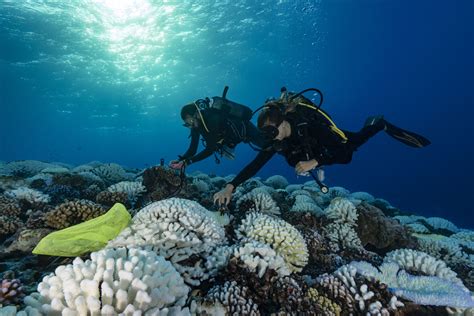Introduction:

California, with its vast coastline and rich marine ecosystems, offers exceptional opportunities for aspiring marine biologists. The state boasts esteemed universities and research institutions that provide comprehensive marine biology programs, catering to students’ diverse interests and career aspirations. This guide explores the leading marine biology programs in California, highlighting their strengths, research areas, and career prospects.
Top Marine Biology Programs in California:
1. Scripps Institution of Oceanography, University of California San Diego
- Research Areas: Climate science, marine ecology, ocean engineering, molecular biology
- Facilities: state-of-the-art research vessels, advanced laboratories, and a world-renowned aquarium
- Career Prospects: Graduates pursue careers in research, academia, environmental policy, and marine conservation
2. University of California, Berkeley
- Research Areas: Marine conservation, ecosystem dynamics, biogeochemistry, coastal processes
- Facilities: extensive field stations, research centers, and a vibrant scientific community
- Career Prospects: Alumni work in marine science, environmental management, and oceanography
3. Stanford University
- Research Areas: Marine biodiversity, species conservation, marine biomedicine, coastal restoration
- Facilities: cutting-edge research labs, a marine biology field station, and a dedicated environmental studies institute
- Career Prospects: Graduates secure positions in research, academia, biotechnology, and environmental advocacy
4. California Polytechnic State University, San Luis Obispo
- Research Areas: Marine mammal research, fisheries science, aquaculture, coastal engineering
- Facilities: state-of-the-art laboratories, research vessels, and a marine mammal training facility
- Career Prospects: Graduates find employment in fisheries management, marine conservation, and environmental consulting
5. Humboldt State University
- Research Areas: Fisheries ecology, coastal geology, marine mammal biology, oceanography
- Facilities: proximity to diverse marine habitats, field research programs, and a dedicated marine science facility
- Career Prospects: Alumni work in marine science, fisheries management, and environmental education
6. San Francisco State University
- Research Areas: Urban marine ecology, conservation biology, marine invertebrate taxonomy
- Facilities: research labs, a marine invertebrate collection, and partnerships with local marine organizations
- Career Prospects: Graduates pursue careers in marine conservation, environmental science, and research
7. Moss Landing Marine Laboratories, San José State University
- Research Areas: Marine ecology, aquaculture, coastal processes, human-environment interactions
- Facilities: Field laboratories, oceanographic research vessels, and a sea turtle rehabilitation facility
- Career Prospects: Graduates work in marine research, environmental consulting, and marine policy
8. Monterey Bay Aquarium Research Institute
- Research Areas: Deep-sea biology, oceanography, marine conservation, climate science
- Facilities: advanced research facilities, state-of-the-art ROVs, and a world-class ocean observing system
- Career Prospects: Graduates pursue careers in oceanographic research, conservation science, and science education
9. University of California, Santa Cruz
- Research Areas: Marine ecology, coastal geomorphology, molecular marine biology, marine policy
- Facilities: coastal field stations, interdisciplinary research centers, and an extensive marine research fleet
- Career Prospects: Alumni find employment in environmental science, marine conservation, and research
10. California State University, Long Beach
- Research Areas: Marine ecology, fisheries science, coastal oceanography, marine pollution
- Facilities: research vessels, marine laboratories, and collaborative research partnerships
- Career Prospects: Graduates work in marine conservation organizations, government agencies, and private industry
Emerging Trends and Career Pathways:
The field of marine biology is rapidly evolving, driven by advancements in technology and increasing concerns about ocean health. Here are some emerging trends and promising career pathways:
- Marine Biotechnology: Advances in biotechnology have opened new opportunities to develop marine-derived drugs, biofuels, and environmental remediation techniques.
- Ocean Acidification and Climate Change: Climate change poses significant threats to marine ecosystems. Marine biologists are studying its effects and developing strategies to mitigate its impacts.
- Marine Conservation and Policy: Protecting marine ecosystems and managing coastal resources requires collaboration between scientists, policymakers, and stakeholders.
- Environmental Education and Advocacy: Communicating scientific findings to policymakers and the public is crucial for raising awareness and promoting marine conservation.
- Marine Immersive Technologies: Virtual reality, augmented reality, and underwater drones offer innovative ways to explore and monitor marine environments.
Exploring the Marine Biology Programs:
Choosing a marine biology program should involve careful research and consideration of individual interests and career goals. Factors to consider include:
- Research Focus: Determine the specific research areas of interest and ensure the program offers opportunities for specialized study.
- Faculty Expertise: Look for programs with distinguished faculty in the desired research fields and a track record of impactful publications.
- Facilities and Equipment: Access to state-of-the-art equipment and research facilities is essential for hands-on learning and research.
- Field Experience: Seek programs that provide ample opportunities for field research, internships, and research cruises.
- Career Services and Alumni Network: Explore the availability of career services and alumni networks to facilitate professional development and career connections.
Conclusion:
California’s marine biology programs offer unparalleled opportunities for students to gain a comprehensive understanding of the marine environment and pursue fulfilling careers in this dynamic field. By carefully exploring the various programs and considering the emerging trends and career pathways, aspiring marine biologists can make an informed decision and prepare themselves to contribute to the sustainable management and conservation of our precious marine ecosystems.
